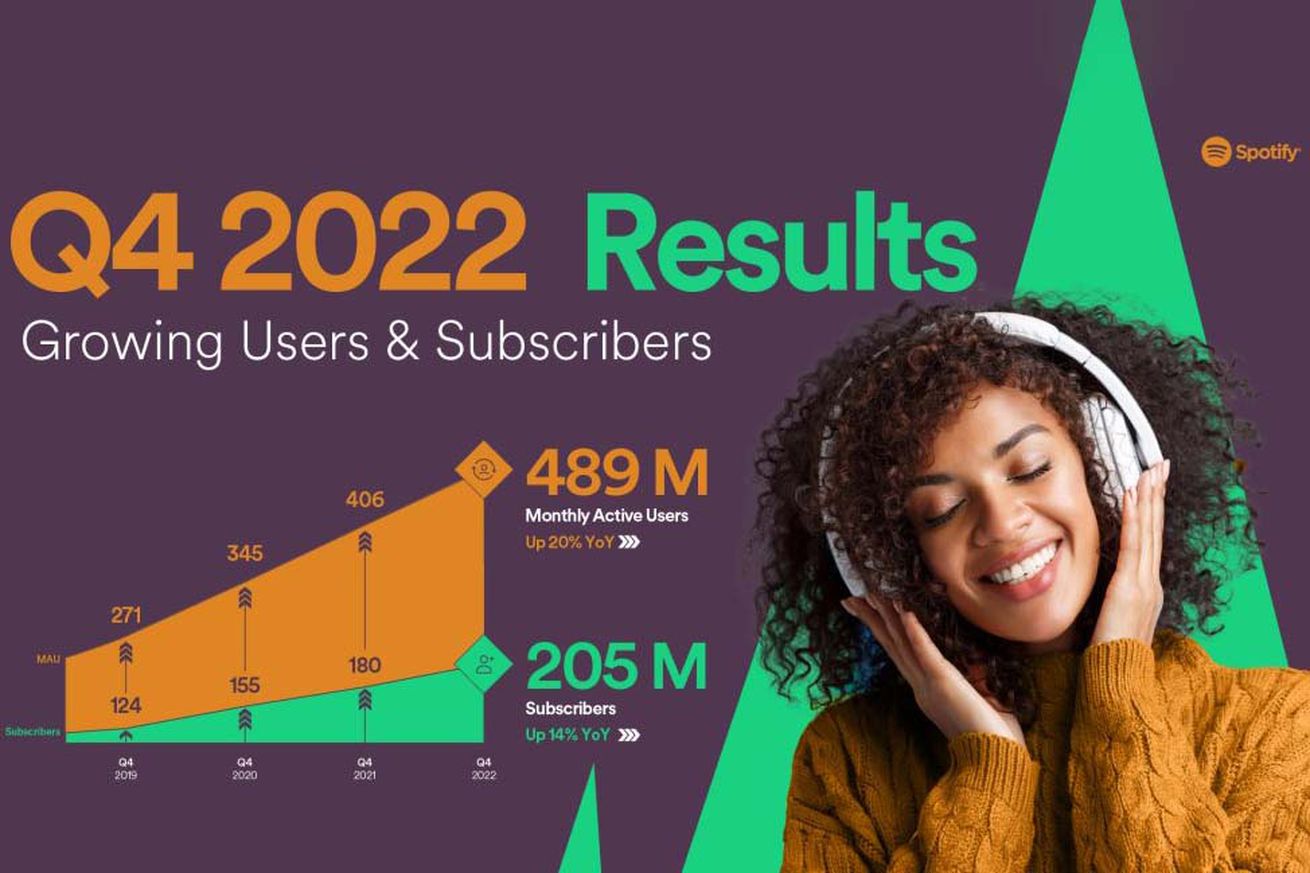
Spotify is first music streaming service to surpass 200M paid subscribers
Spotify’s number of premium subscribers increased to 205 million as of December 31st, the company announced in today’s earnings release, representing a 14 percent increase year-on-year. That helped increase its monthly active users (MAUs) to 489 million, a 20 percent rise. That’s above its guidance from last quarter, when it said it expected to reach 202 million premium subscribers and 479 million MAUs.
The earnings release comes a week after Spotify announced layoffs affecting six percent of its company, or a little under 600 employees. But, much like other tech companies facing the same economic downturn, Spotify’s latest earnings release suggests its financial situation hasn’t significantly worsened in recent months. But as my colleague Elizabeth Lopatto recently wrote, the reasoning behind these industry layoffs could have more to do with investors than raw profitability.
Spotify did post an operating loss of €231 million (around $250 million) in this quarter. But that’s not a huge departure from the company’s past performance, given it has tended to prioritize growth over turning a profit on a quarterly basis. The figure is under its previous guidance of a €300 million (around $325 million) loss this quarter. Average revenue per premium subscriber now sits at €4.55 (around $4.93), a year-over-year increase of 3 percent, but slightly down compared to €4.63 (around $5.01) last quarter.
Today’s earnings release arrived without any more news about Spotify HiFi, a new subscription tier promising lossless CD-quality audio streaming that was announced at a big Spotify launch event almost two years ago. At this point there are suspicions that Spotify has had to rethink the feature in light of competitors Apple Music and Amazon Music now offering lossless streaming at no additional cost to subscribers.
Spotify is widely considered to be the largest music streaming service in the world, although comparative subscriber numbers aren’t easily available for competitors Apple Music and Amazon Music. The latest figures compiled by Music Ally suggest that Apple Music had around 60 million paying subscribers as of 2019, and Amazon Music had 55 million in 2020.

